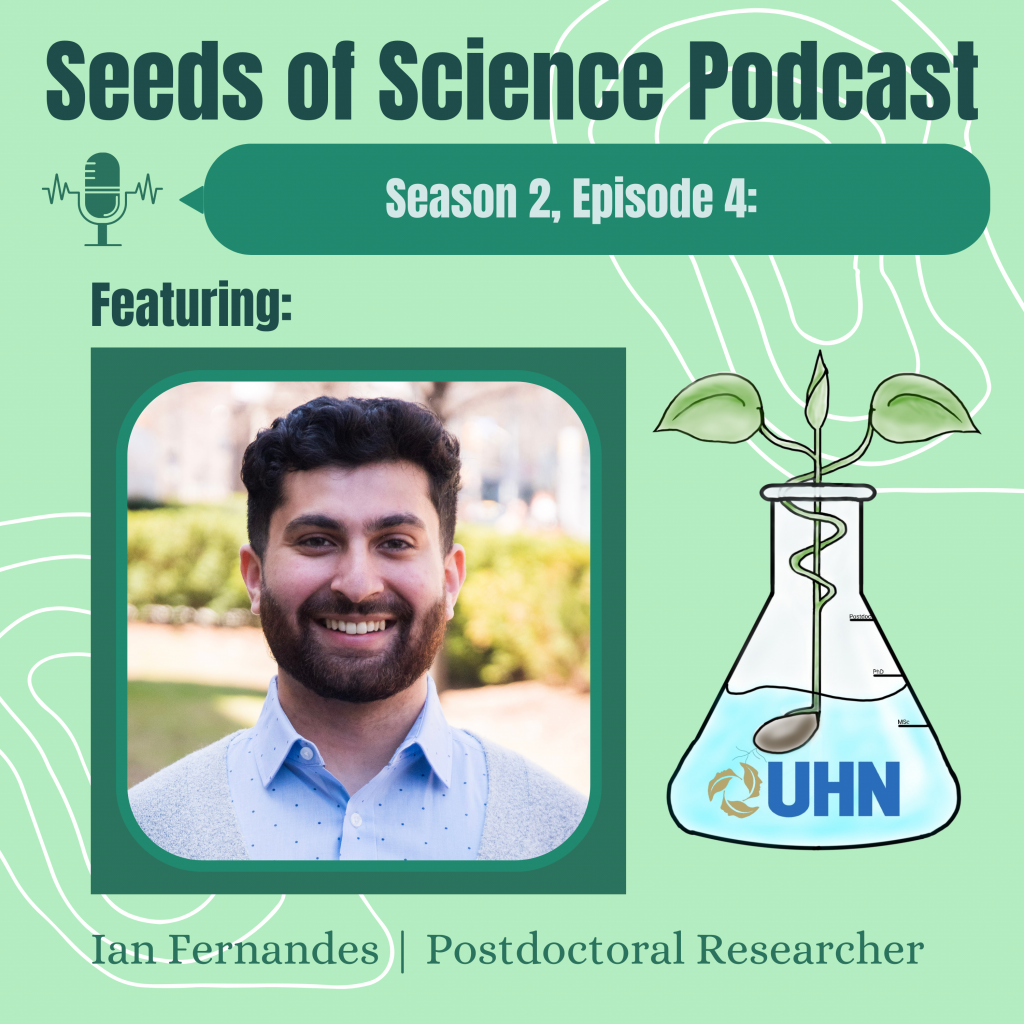Seeds of Science: Season 2, Episode 4
Stem Cells for Cardiovascular Disease: A Dive into Dr. Ian Fernandes' Research

Meet Dr. Ian Fernandes: Hi everyone, I’m a Scarborough native and grew up in the city. I have always been curious but when I learned about stem cells I was hooked. I am now pursuing a journey that will enable me to join other researchers in using this technology to cure different diseases. Hopefully one day in the near future this will be heart disease!
I am involved with MBP Community Outreach and UHN Stem Pathways here at UHN and the broader UofT community. If you have a passion for mentoring young minds and sharing your knowledge and passions then these opportunities are perfect for you!
Current Position: Postdoctoral Researcher, Dr. Gordon Keller’s lab at McEwen Stem Cell Institute. Ian was a PhD student in Dr. Keller’s lab at the time of podcast recording.
Pronouns: he/him
Listen to the episode on:
Contact Ian:
Email: ian.fernandes@uhn.ca
Twitter: @IMF__
More information:
Read Ian’s research on “Generation of mature compact ventricular cardiomyocytes from human pluripotent stem cells” in Nature Communications.
Definitions:
Stem cell: An undifferentiated cell of a multicellular organism which is capable of giving rise to indefinitely more cells of the same type, and from which certain other kinds of cell arise by differentiation
hPSC (human pluripotent stem cells): Pluripotent stem cells can be used to create any cell or tissue the body, allowing scientist to study human development and the causes of diseases in a culture dish.
Infarcted heart: A myocardial infarction (commonly called a heart attack) is an extremely dangerous condition that happens because of a lack of blood flow to your heart muscle.
Electrical coupling/rhythms: Cardiac excitation-contraction coupling describes the series of events, from the production of an electrical impulse (action potential) to the contraction of muscles in the heart
Glycolysis: the series of reactions that break down glucose to extract energy, this is done by enzymes splitting it into two three-carbon molecules called pyruvates
Fatty acid oxidation: is the process your body uses to break down and use fatty acids for energy, this provides more ATP than carbohydrate, but it requires more oxygen per mole of ATP synthesized.
Cardiomyocytes: cells responsible for generating contractile force in the intact heart
Gene therapy: the transplantation of normal genes into cells in place of missing or defective ones in order to correct genetic disorders.
Disclaimer: The Seeds of Science podcast is supported by UHN’s Office of Research Trainees (ORT). The views expressed in the podcast episodes are not necessarily those of UHN or ORT.




